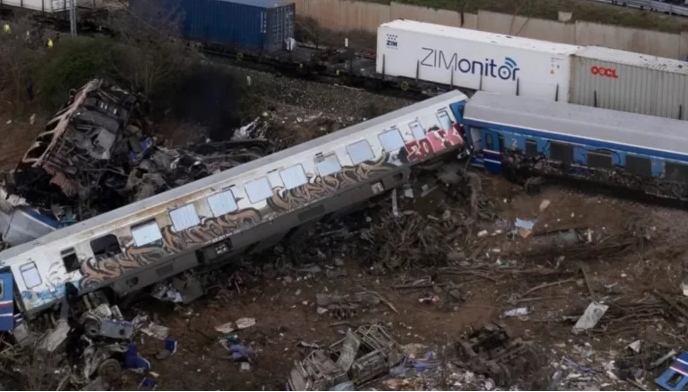A report by a special commission of inquiry appointed by the Greek government to investigate the conditions that led to the deadly train collision in northern Greece on 28 February has uncovered a chain of errors. Who is to blame for the Greek crash?

Specifically, the 228-page official report, which is divided into 10 chapters, assigns blame to the state railway company OSE, its subsidiary ERGOSE, which is responsible for infrastructure construction, the Railways Regulatory Authority (RAS), the private train operator Hellenic Train, as well as the stationmaster who set the two trains on a collision course and the dead train drivers, according to Greek publication ekathimerini.com. They failed to comply with regulations.
The three-member panel also stresses the need to modernise the railway, identifying chronic problems and the need for radical changes in staff transfers and training.
Greek accident under scrutiny
Commenting on the report, state minister Giorgos Gerapetritis, responsible for infrastructure and transport, said “it would be advisable for those who criticised the commission for its objectivity and the government for its intentions to do their own self-criticism”. He added that the findings are being made public so that there is full transparency in a matter where there is understandably a major public interest.
The report, he pointed out, highlights serious human breaches of the rules and systemic weaknesses of a long-standing nature. He argued that most of the commission’s recommendations have already been implemented or are being initiated by the ministry. The report refers to a number of weaknesses, including the Larissa stationmaster’s apparent absolute certainty that all his decisions were correct and, as a result, he even misinformed the train driver.
He also mentioned that 37 out of 38 stationmasters passed their training exams in Thessaloniki with good results, with only one failing because he did not show up. The report refers to railway modernisation projects that could have prevented the accident, while stressing that even when completed, they will bring Greek railways to the point where other European systems have been since the 1970s.
The report also questions the appointment of political parties to the OSE, the allocation of projects to contractors and the waste of public money.
Share on:



